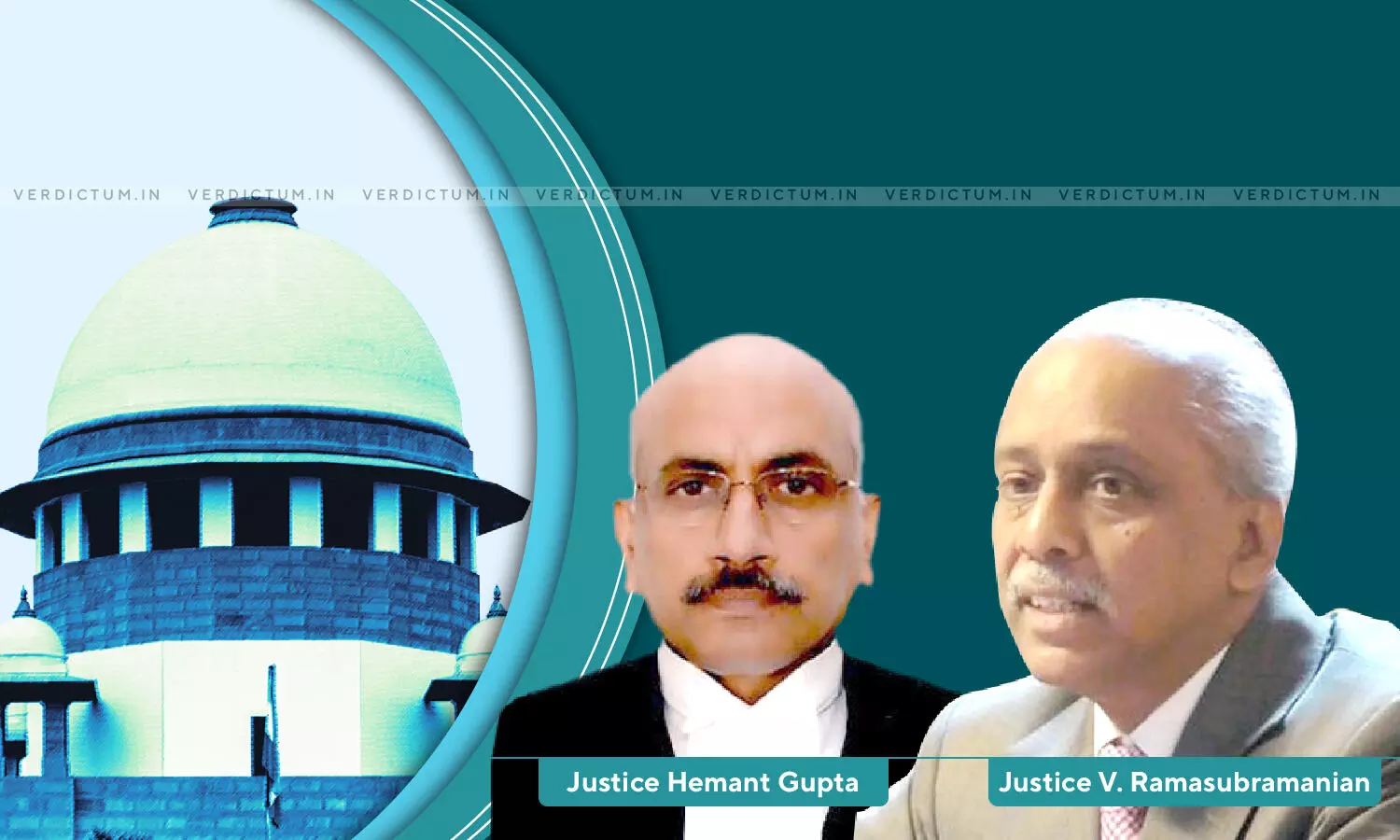
Raising Additional Demand Due To Short Assessment Of Electricity Charges Cannot Be Construed As 'Deficiency In Service' Under The Consumer Protection Act – Supreme Court
 |
|A two-judge Bench of Justice Hemant Gupta and Justice V. Ramasubramanian has held that raising an additional demand in the form of 'short assessment notice' on the ground that in the bills raised during an earlier period, the multiply factor was wrongly mentioned, cannot tantamount to 'deficiency in service' under the Consumer Protection Act, 1986.
An appeal was preferred before the Supreme Court against the decision of the National Consumer Disputes Redressal Commission (NCDRC), which had dismissed the complaint of the Appellant for the reason that there was no deficiency in service on the part of the Respondent.
The complaint was dismissed by the NCDRC stating that it was a case of 'escaped assessment' and not a case of 'deficiency in service.'
In this case, the Appellant was carrying on the business of manufacturing cotton yarn. The Appellant was served with a 'short assessment notice' by the Respondent, claiming that though the multiply factor (MF) was 10, it was wrongly recorded in the bills as 5. As an outcome, there was short of billing to the tune of Rs. 1,35,06,585/. The Appellant was called upon to pay the amount as demanded.
The Appellant responded by filing a complaint before the National Commission, wherein it was contended that the demand of the Respondents was the outcome of a glaring mistake and gross negligence on their part and that as per Section 56 of the Electricity Act, 2003, no amount due from a customer was recoverable after a period of two years from the date on which it became first due.
At the time of admission of the appeal, the Supreme Court had stayed the impugned order of the NCRDC. However, when an application for vacating the interim order was filed by the Respondent, the Court had modified the order and directed the Appellant to pay 50% of the demand amount with a condition that in case the Appellant succeeded, the amount would be refunded with interest at 9% p.a.
The Apex Court, after considering the contentions of both the parties at length, noted that the Appellant did not dispute the correctness of the claim of the Respondents that the multiply factor (MF) to be applied was 10 instead of 5.
The Court noted that the only grievance of the Appellant was that they could not be made to suffer on account of the negligence on the part of the Respondents. Also, the Appellant had raised an argument about the bar under Section 56 which is related to 'disconnection of supply in default of payment.'
The two major issues which were dealt with by the Court were –
Whether the raising of additional demand, by itself would tantamount to any deficiency in service; and
Applicability of Section 56(1) and (2) to this case.
The Bench observed that if a licensee discovers in the course of audit or otherwise that a consumer has been short-billed, the licensee is certainly entitled to raise demand.
"So long as the consumer does not dispute the correctness of the claim made by the licensee that there was short assessment, it is not open to the consumer to claim that there was any deficiency," the Court asserted.
The Court agreed with the decision of the National Commission and held that NCDRC was correct in holding that the 'short assessment notice' was not a case of 'deficiency in service' but one of 'escaped assessment'.
Regarding Section 56, the Court held that electricity charges become "first due" only after the bill is issued, even though the liability would have arisen on consumption. The Court also held that, as such, there was no bar under Section 56 on raising additional demand even after the period of two years in the case of a mistake or bonafide error.
The Court held that the question of neglect to pay would only arise after a demand is raised by the licensee. If the demand is not raised, there would be no neglect on the part of the consumer to not pay any charge for electricity and hence, the period of limitation would not start. Therefore, section 56(2) would not be applicable in this case and hence would not favor the Appellant.
"Therefore, if the licensee has not raised any bill, there can be no negligence on the part of the consumer to pay the bill and consequently the period of limitation prescribed under Subsection (2) will not start running," Court observed.
In the light of these observations, the Court dismissed the appeal and upheld the decision of the National Commission. The Court ordered the Appellant to pay the remaining amount of the dues within eight weeks.